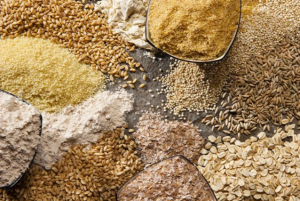So you’ve made up your mind. You spent some time thinking about it and you know exactly what you want to achieve when it comes to your nutrition. We’re definitely heading in the right direction. But before we go any further, make sure that you have your goals in the right places. What I mean is, it’s very likely that you’ve decided that you want to broadly start eating healthier to achieve some ultimate goal. Perhaps it’s weight loss, clearer skin, or lower blood pressure. Additionally, maybe you decided that you’re going to do this by eating more whole grains, more veggies, and more fruits. These are all excellent goals, and ones that should be kept. But again, stressing what I talked about last time, let’s take this slow.
Before you start working towards these goals, you’ve got to set a foundation of at least basic nutrition knowledge. I mean think about it, if there was a million dollars at the top of Mount Everest, but you didn’t know how to rock climb, how would you ever get to the top? Do you know anything about what are called the macronutrients? How about your current daily calorie intake? These are just a few of many questions that are absolutely critical to address before you really get going with achieving your goals. So, to get started, let’s talk about the macronutrients.
The human body gets its energy from what are called the macronutrients. These nutrients are called macronutrients because they are needed in gram (g) amounts per day. They are essential to a healthy and functional body; without them the body will experience a decline in function. The three categories of macronutrients are Carbohydrate, Protein, and Fat. All of these have a different primary function in the body, but a critical function nonetheless. For this post, I’ll start with carbohydrates.

CARBOHYDRATES ARE NOT A BAD THING!! Phew… now that I got that off my chest:
Carbohydrates are the preferred source of energy for the body in comparison with the other macronutrients. There are a few different reasons for this, but the main one is that carbohydrate is easily broken down by the body, and when broken down, is in the form that the body can quickly convert into energy. Each gram of Carbohydrate is 4 calories. So, if you ate 40 grams of carbohydrate that would be 160 calories. What you may not know is that carbohydrates are sugars. Wait… really? Yes. I’ll spare you the biochemistry, but what you need to know is that your diet should be centered around what are called complex carbohydrates. Complex carbohydrates are the ones that are found in things like whole grain and whole wheat products, oatmeal, potatoes, and brown rice. Simple carbohydrates are found in sweeter things like white breads, fruits, and sugar sweetened beverages. The reason that complex carbohydrates are best is because they take some time for your body to digest. This means that they are available for energy for multiple hours. To make an analogy, eating simple carbohydrate is like setting off an explosion. You get a lot of energy really fast, but before you know it, it’s all gone and you’re hungry. Complex carbohydrates, on the other hand, are like gasoline in a car. The energy from them is released gradually, so that there is enough to go around for many miles. There are many more aspects of carbohydrate that can be discussed, but for now let’s just stick with these basics. At least some understanding of carbohydrate is really important for you to know before you dive in to achieving your goals. Here is a quick summary of basic carbohydrate knowledge.
Carbohydrate:
- Primary macronutrient energy source for the body
- 2 Categories: Simple, and Complex
- 4 calories per gram
- Simple Carbohydrate gives you quick energy
- Complex carbohydrate gives you lasting energy; found in whole grains, whole wheat, potatoes, oatmeal
